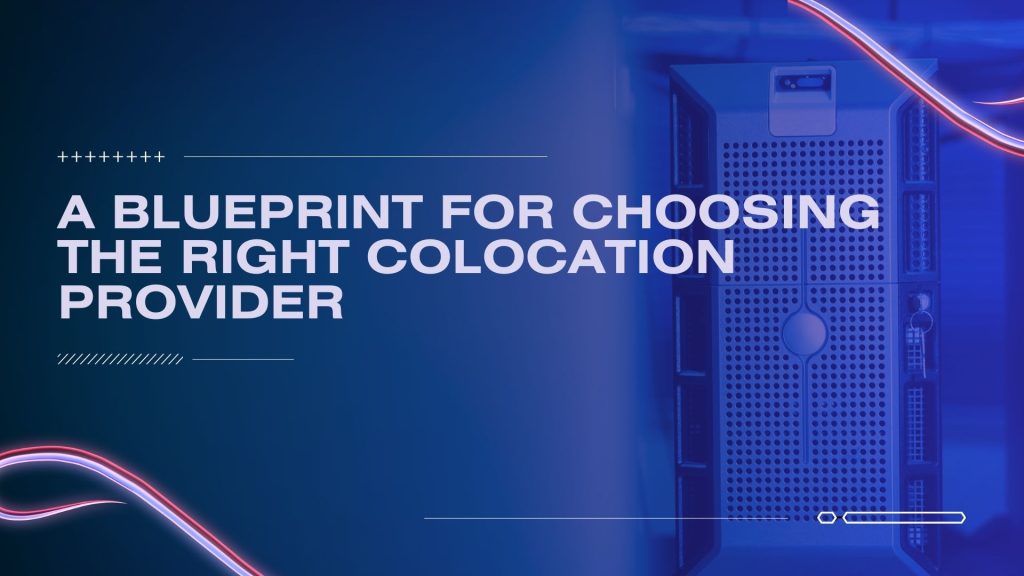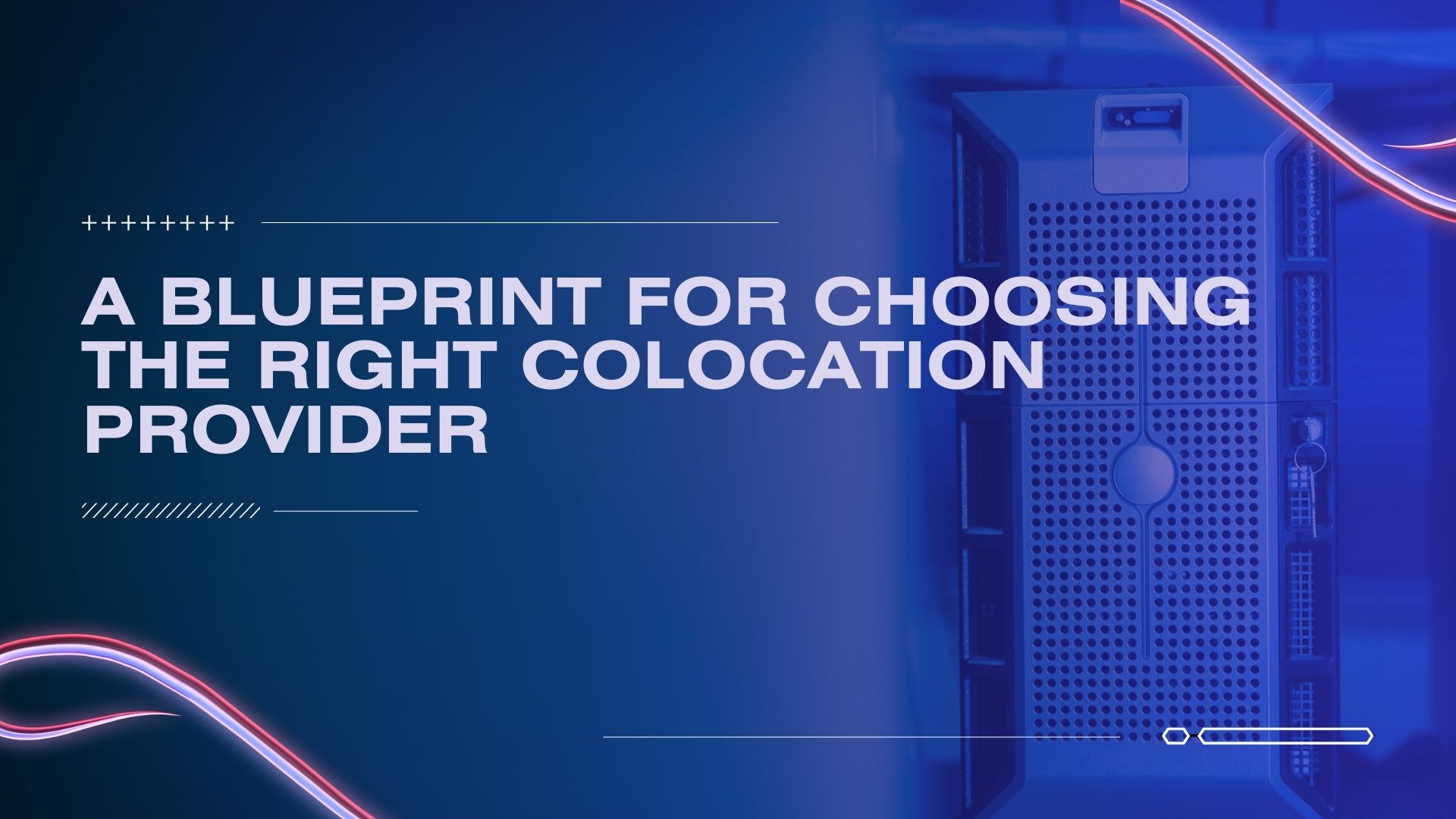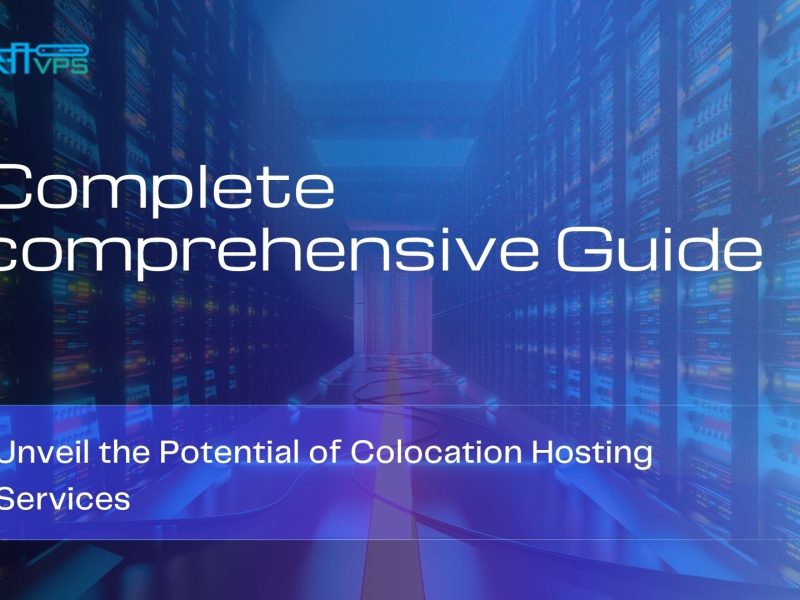IT managers must make an important choice when selecting a colocation hosting service provider in today’s rapidly evolving digital landscape. Choosing the right partner for Colocation Hosting services can be a challenging task Because there are so many options available in the market. Many businesses and organizations looking for a dependable and secure environment for their servers are increasingly choosing colocation hosting services. This blog is designed to help you find the ideal colocation hosting services provider for your needs by guiding you through the confusing array of options.

Understanding Colocation Hosting
Let’s take a moment to clarify what colocation hosting means before we get into the selection process. Businesses or organizations that need to secure off-premises locations to host their IT infrastructure, such as servers, networking equipment, and storage systems, can hire colocation service providers to rent out space in their data centre facility.
Key Considerations When Choosing the Colocation Hosting Service Provider
There are many key considerations to keep in mind that will greatly benefit your business when strategizing how to choose a colocation provider:
1. Assess Your Business Requirements:
When you are going to choose the colocation hosting service provider, the first step is to assess your business’s specific needs by considering factors. These factors are the size of your operations, the volume of data you handle, and your growth projections. Understanding your requirements will help you determine the amount of rack space, bandwidth, and power your business needs from a colocation facility.
2. Location Matters:
The physical location of the colocation data centre is a critical factor. Consider choosing a location that is convenient for your business and your target audience. Because proximity can affect latency and network performance, choose a location that supports your company’s objectives. To reduce the chance of natural disasters, make sure the facility is situated in a safe and stable area.
3. Reliability and Uptime:
The reliability of a colocation hosting services provider is paramount. Look for a facility that guarantees high uptime, preferably 99.99% or more. Check the provider’s track record, reviews, and testimonials from existing clients. A reliable data centre ensures that your business stays online consistently, providing a positive experience for your users.
4. Network Connectivity:
The connectivity options offered by a colocation hosting provider are crucial for ensuring fast and reliable access to your servers. Examine the provider’s network infrastructure, including the number of carriers and internet service providers (ISPs) available. A diverse and redundant network ensures that your business remains connected even in the face of network issues or outages.
5. Scalability and Future Growth:
Choose a colocation hosting services provider that can scale with your business. Assess the provider’s ability to accommodate your future growth in terms of additional rack space, bandwidth, and power. Scalability is essential to avoid the hassle of migrating to a new facility as your business expands.
6. Security Measures:
You cannot compromise on the security of your data. Consider the physical security measures, access controls, and surveillance measures that the colocation hosting provider has implemented. A reputable facility should have 24/7 security personnel, video surveillance, and biometric access controls to ensure the safety of your equipment.
7. Compliance and Certifications:
Depending on your industry, your business may be subject to specific compliance requirements. Ensure that the colocation hosting services provider adheres to industry standards and has relevant certifications. Compliance with regulations, including HIPAA, PCI DSS, and SSAE 18, demonstrates a commitment to maintaining a secure and compliant environment.
8. Technical Support and Service Level Agreements (SLAs):
Consider the level of technical support offered by the colocation provider. A responsive support team is essential for addressing any issues promptly. Review the service level agreements (SLAs) to understand the terms and conditions of the services provided. This includes details on response times, resolution times, and compensation for downtime.
9. Cost Considerations:
While cost should not be the sole deciding factor, it is undoubtedly an essential consideration. Compare the pricing structures of different colocation hosting service providers and ensure that you understand all the fees involved. Factor in any additional costs for bandwidth, power usage, and extra services.
10. Customer Reviews and Recommendations:
Finally, don’t underestimate the power of customer reviews and recommendations. Seek feedback from businesses that have experience with the colocation hosting services providers you are considering. Honest reviews from existing clients can provide valuable insights into the provider’s performance, customer service, and overall satisfaction.
Final Words
It can be challenging to choose the right colocation hosting services provider that directly impacts the performance and security of your online operations. When you carefully consider the needs of your company, evaluate key factors like location, reliability, scalability, and security, and gather feedback from other users, you can set the foundation for a successful online presence with your business goals.
You can make impactful decisions to build a foundation by choosing Desi VPS for colocation hosting services.
Interested in learning more about colocation hosting and its role in boosting business growth? Check out the provided article – Colocation Hosting Services: Fuels The Growth of Business.


